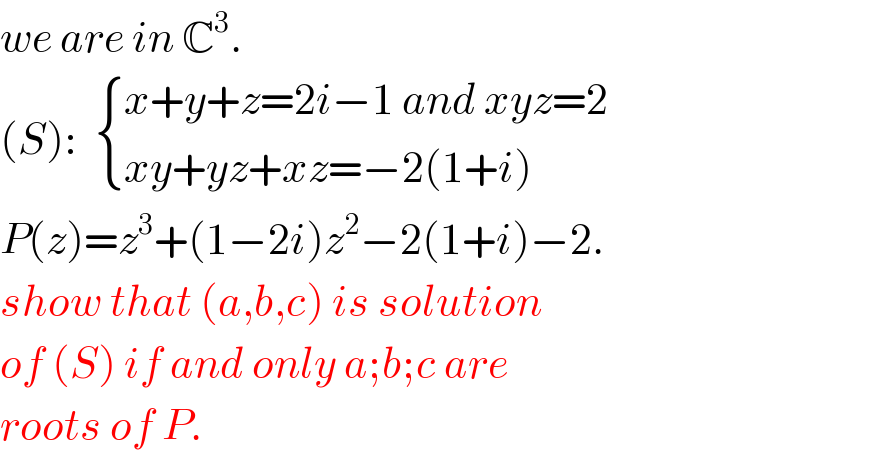
Question Number 122658 by mathocean1 last updated on 18/Nov/20

$${we}\:{are}\:{in}\:\mathbb{C}^{\mathrm{3}} . \\ $$$$\left({S}\right):\:\:\begin{cases}{{x}+{y}+{z}=\mathrm{2}{i}−\mathrm{1}\:{and}\:{xyz}=\mathrm{2}}\\{{xy}+{yz}+{xz}=−\mathrm{2}\left(\mathrm{1}+{i}\right)\:}\end{cases} \\ $$$${P}\left({z}\right)={z}^{\mathrm{3}} +\left(\mathrm{1}−\mathrm{2}{i}\right){z}^{\mathrm{2}} −\mathrm{2}\left(\mathrm{1}+{i}\right)−\mathrm{2}. \\ $$$${show}\:{that}\:\left({a},{b},{c}\right)\:{is}\:{solution} \\ $$$${of}\:\left({S}\right)\:{if}\:{and}\:{only}\:{a};{b};{c}\:{are}\: \\ $$$${roots}\:{of}\:{P}. \\ $$
